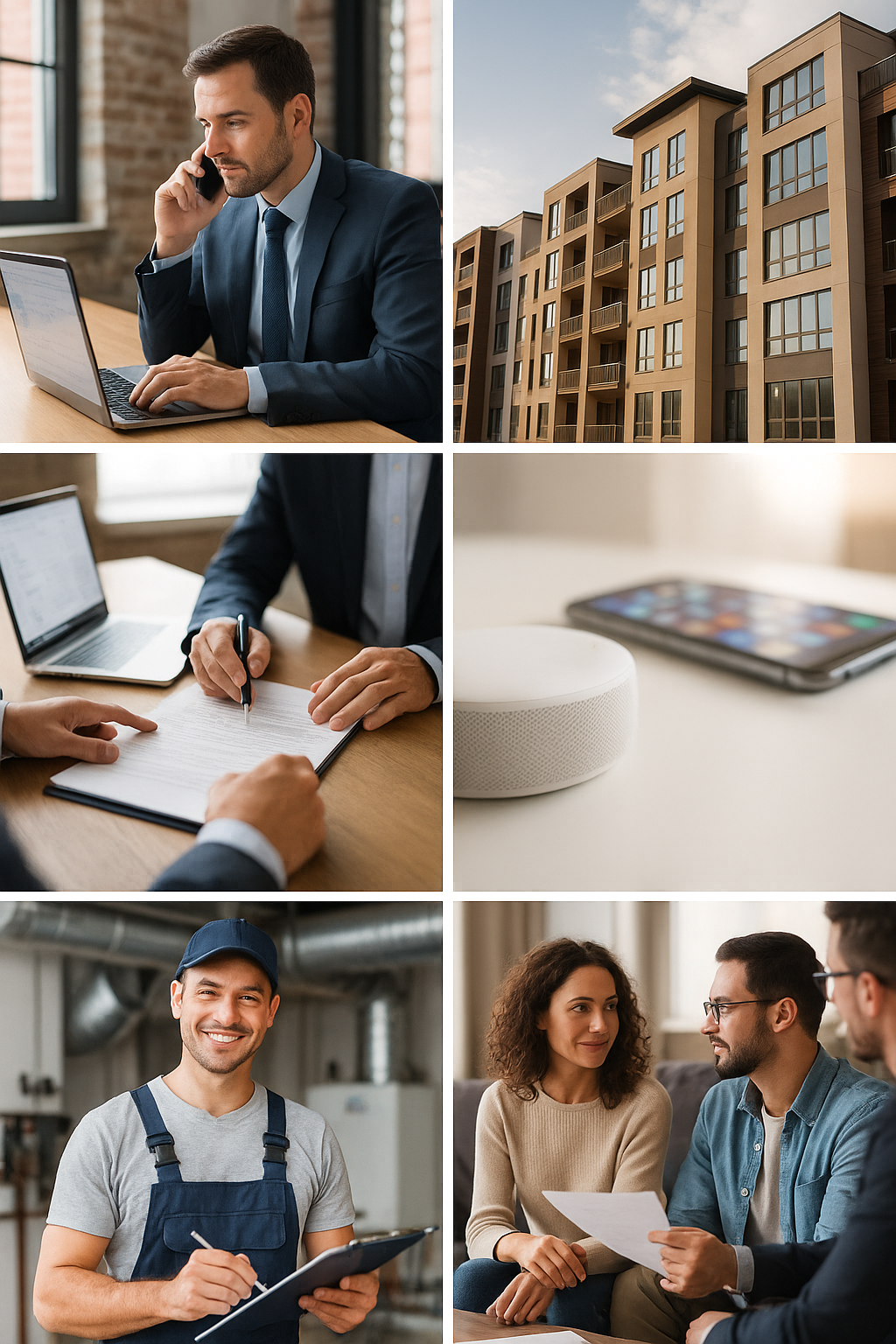The Current Landscape of Property Management
Property management today is more dynamic than ever, shaped by shifting tenant expectations, advancing technology, and evolving regulatory requirements. Owners and managers face balancing efficiency with personalization, ensuring properties remain profitable while fostering positive tenant relationships. Digital tools like cloud-based platforms, mobile apps, and AI-driven analytics now play a central role in streamlining rent collection, maintenance scheduling, and communication. These innovations not only reduce administrative burdens but also enhance transparency for both tenants and property owners.
Modern solutions have become essential in addressing today’s challenges, from improving tenant retention to meeting compliance standards. For example, companies offering property management in Berwyn, PA often rely on integrated systems that mirror broader industry trends—demonstrating how localized services can reflect and adapt to global best practices. As technology evolves, property managers who embrace innovation will be better positioned to handle current and future demands.
Key Challenges Facing Property Managers
Property managers encounter various challenges, including securing rent payments, adhering to legal requirements, controlling increasing expenses, and minimizing tenant turnover through flexible lease options and amenities. They need to reassess their procedures to enhance operational efficiency and service quality. These issues are further complicated by local economic conditions and regulations. Achieving success depends on establishing robust documentation and communication systems, as well as keeping informed about regional best practices.
How Technology Is Transforming Property Management
Digital transformation in property management is transforming nearly every facet of the industry. Cloud-based systems facilitate automatic rent reminders, simplify lease applications, support digital payments, and allow maintenance tracking, significantly reducing paperwork and administrative bottlenecks. Mobile apps and smart home devices provide real-time visibility and control for managers and residents, boosting convenience and responsiveness.
Adopting these technologies is linked to higher tenant satisfaction, quicker lease renewals, and fewer revenue losses. For property owners, going digital makes asset data accessible and secure, empowering smarter, data-driven decisions over time.
Effective Communication with Tenants and Owners
Transparent, regular communication is the foundation of productive relationships with tenants and property owners. The most effective property managers implement a mix of digital channels—email, text messages, and dedicated mobile apps—to issue timely updates, send reminders, and respond quickly to inquiries. Automated notifications for lease renewals, rent collection, and maintenance scheduling have become the baseline for professional responsiveness.
Establishing communication norms from day one, setting clear expectations, and proactively addressing resident concerns foster mutual trust.
 Risk Management and Compliance
Risk Management and Compliance
Property managers must stay compliant with housing laws, which require regular updates, awareness of fair housing regulations, and proper documentation, increasing administrative tasks. Professional development and industry subscriptions help keep managers informed. Risk mitigation involves tenant screening, straightforward leases, and regular inspections to prevent damage and liability. A comprehensive risk management policy ensures compliance and stakeholder protection.
Innovations in Maintenance and Repairs
Longer tenant stays and valuable investments depend on rapid, reliable maintenance service. Modern software tools give property managers, vendors, and tenants instant access to digital work order systems, allowing real-time maintenance requests to be scheduled and tracked. Predictive maintenance—using technology to anticipate repair needs based on usage data—reduces emergency repairs and extends the lifespan of building assets.
Preventive care programs and automated reminders for inspections, servicing, and upgrades are also becoming standard practice. These measures minimize downtime and maintenance costs, offering both property owners and residents peace of mind in the reliability and responsiveness of their management team.
Incorporating Sustainable Practices
Sustainability is no longer a trend but a necessity. Property managers are increasingly adopting eco-conscious practices, installing energy-efficient lighting, smart thermostats, and water-saving fixtures. These initiatives are environmentally responsible and often result in significant cost savings over time.
Federal and local green building programs offer robust guidelines for managers seeking to reduce a property’s carbon footprint. By prioritizing sustainability, managers appeal to a growing demographic of environmentally aware tenants and align themselves with broader community goals for responsible stewardship.
Future Trends in Property Management
Looking forward, the future of property management points to greater integration of technology, enhanced focus on sustainability, and commitment to tenant-centric service. The industry’s rapid modernization will usher in more flexible lease products, increased automation in administrative processes, and the routine use of artificial intelligence to drive business insights. Management professionals who stay informed and adaptable will be well-positioned to build resilient portfolios and deliver exceptional resident experiences.
Staying ahead of evolving demands and leveraging modern solutions will set the standard for success, efficiency, and tenant satisfaction in the years to come.
Final Takeaway
Property management is rapidly evolving, driven by technology, sustainability, and changing tenant needs. By embracing innovation, maintaining clear communication, and prioritizing compliance and efficiency, managers can meet today’s challenges while preparing for tomorrow. The most successful approaches balance profitability with tenant satisfaction, ensuring properties remain resilient and competitive in a shifting marketplace.